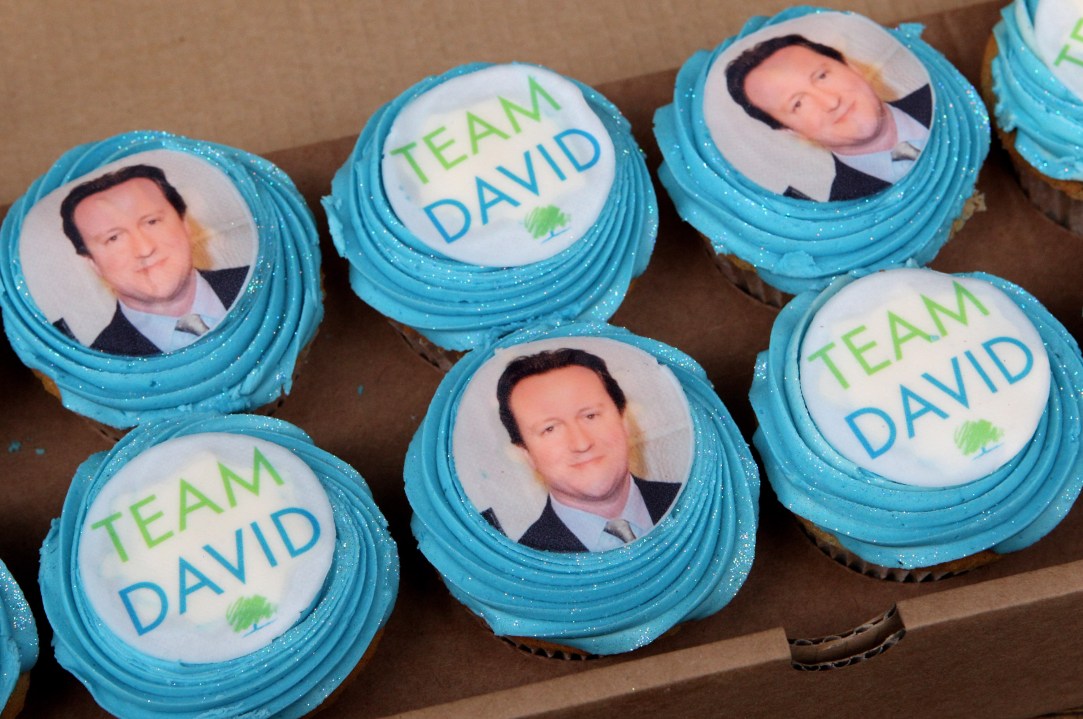 The Guardian missed a trick today. It should have endorsed the Conservatives. As a regular reader of that great newspaper, I
can diagnose the ailment: it is confusing intentions with outcomes. It wishes for a more progressive society, greater equality and the betterment of the most vulnerable. But it has not quite worked
out that these aims cannot be achieved by a powerful government: and that state-directed attempts at promoting a “progressive” society actually make it less equal, more regressive and end
up empowering a bureaucratic elite. The Guardian lets itself down here: it has focused on what is said – not what is done. In doing so, it does a disservice to its own progressive values.
The Guardian missed a trick today. It should have endorsed the Conservatives. As a regular reader of that great newspaper, I
can diagnose the ailment: it is confusing intentions with outcomes. It wishes for a more progressive society, greater equality and the betterment of the most vulnerable. But it has not quite worked
out that these aims cannot be achieved by a powerful government: and that state-directed attempts at promoting a “progressive” society actually make it less equal, more regressive and end
up empowering a bureaucratic elite. The Guardian lets itself down here: it has focused on what is said – not what is done. In doing so, it does a disservice to its own progressive values.
Here are some snippets from their endorsement of the Lib Dems, along with my comments:
1) “Cameron’s revolution has not translated adequately into detailed policies, and remains highly contradictory.” This is incorrect. There are plenty of detailed
policies: school reform being the best example. These excellent policies have not translated adequately into spin. The great irony is that Cameron, a so-called PR man, is pretty bad at PR.
2) “Cameron has explicitly aligned himself with the liberal Conservative tradition which the Thatcherites so despised during their long domination of the party.” You can’t get more liberal that Thatcher: her picture stands on Cameron’s desk. But good for him, for persuading The Guardian otherwise.
3) “At times the Tories have argued, against all reason, that Britain’s economic malaise is down to overblown government, as opposed to the ravages of the market.” The Guardian may wonder, then, why Canada and Australia are in much better shape. Both are capitalist countries, yet have far smaller and soon-to-be-vanquished deficits. While Britain, by contrast, has decided to treble its national debt and force the taxpayer to buy five banks. The answer is Britain’s state spending (which has been out of control since it first exceeded tax revenue in 2001/2) and the need to nationalise five banks due to inept regulation, not capitalism.
4) “He is eloquent about the overmighty state but proposes to rip up the Human Rights Act which is the surest weapon against it.” If only Cameron proposed to rip up the HRA. He simply proposes a Bill of Rights which would be junior to Strasbourg – thanks to Grieve and his advisory cabal of ECHR-worshipping lawyers.
5) “He talks about a Britain that will play a constructive role in Europe while aligning the Tories in the European parliament with some of the continent’s wackier xenophobes.” Only a few political anoracks care about who sits where in the European Parliament. Funny to see the Guardian extol the virtues of PR in the top half of its leader, while denouncing the need to forge an alliance with the minority parties who are the inevitable result of PR. They could have done with working out this point a bit more in editorial conference.
6) “Behind the party leader’s own engagement with green issues there stands a significant section of his party that still regards global warming as a liberal conspiracy.”
As do most of the grubby little voters, the working class whom the Guardian purports to
salute.
7) “A Cameron government might not be as destructive to Britain as the worst Tory regimes of the past.” The Guardian offers no facts to back up this laughable assertion, but I
don’t think it intends to be taken seriously in its claim that there was anything destructive about the 1980s – where Britain recovered from being the sick man of Europe to achieving
record employment levels that have not been matched since. Even in its beloved manufacturing (a subject which Guardian business pages commendably ignores), Labour has overseen far more
“destruction”. Throughout the 18 Tory years, the UK trade balance in finished manufactured goods was either in relatively modest surplus or relatively modest deficit. Since 1997
it has been in ever-increasing deficit and rapidly increasing – it is about £50bn a year now. Just imagine what the Guardian would have been saying had this occurred under the Tories.
But, again, I don’t think the reader is supposed to take this point seriously.
8) “Labour’s record on poverty remains unmatched, and its link to the poor remains umbilical.” I agree wholeheartedly: when you elect Labour governments, you get more poor people. It is a deplorable link, and one which next week’s election should sever. More people have been taken into “absolute poverty” (as Labour calls it) under Brown that Thatcher and Major combined.
9) “A newspaper that is proudly rooted in the liberal as well as the labour tradition – and whose advocacy of constitutional reform stretches back to the debates of 1831-32 – cannot ignore such a record.” The Spectator’s roots too go back to those tumultuous years: the first election we covered was that of 1830 when electoral reform was in the air. We firmly backed it then, for the same reasons we reject PR now: we are a radical liberal publication which argues for more power placed in the hands of the masses, and of less power with the political classes. The Guardian is mistaken if it thinks allowing government by closed-door stitch-up would be truer to the liberal idea.
10) “If not now, when? The answer is clear and proud. Now.” Now, poor old Hillel the Elder will have seen his famous aphorism enlisted to many causes during the last couple of millennia – but that of voting Liberal Democrats must surely be the most puzzling. Voting Lib Dem will advance no cause other than the destruction of Westminster’s decisive electoral system.
In fact, this point is worth exploring this a little more, because it takes us to the core error of The Guardian’s endorsement. Were Hillel the Elder alive now, I suspect he would be an enthusiastic advocate of David Cameron’s ‘Big Society’. His full quote explains why the Guardian (if, as I suspect, they had Hillel in mind when they wrote this) should vote Tory. He said: “If I am only for myself, what am I? And if not now, when?” By empowering people, a government is not empowering narrow selfishness. People are inherently kind: their satisfaction is lined to that of the health not just of their family, but their community. This is hardly a neoconservative observation: it’s as old as the Torah and keeps being restated down the ages. As Whitney will doubtless observe in Glasgow tonight, learning to love oneself can rightly be considered the greatest love of all. Does this make her a Tory?
The basic ‘Big Society’ message is that giving individuals more power – in order to help their family and community – is the surest route to the good society. Hillel’s ‘Golden Rule’ does advocate looking after neighbour, being generous with the products of one’s labour, etc. But terrible things happen when vain, pious men seek to reproduce human kindness with a massive bureaucracy. The Guardian is, understandably, dazzled by the nobility of the aims of a leftist government. The remedy to this is to look at the results (mass welfare dependency, widening inequality in spite of all the extra taxes, etc). The statist experiment is an expression of the hubris which Hillel warned against. “Trust not thyself till the day of thy death,” he said.
It is this humility, combined by faith in mankind, which forms the basis of David Cameron’s Big Society agenda. And it is one which deserves The Guardian’s vote.








Comments